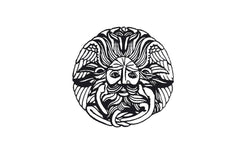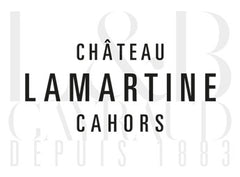11 products
- White Wine
- Chardonnay
- Sustainable
- Dry
- Medium Bodied
- 750ml
- 12.5% alc./vol
About the Winery
Groupe Bellene

Led by Nicolas Potel in Beaune, Groupe Bellene is composed of the négociant arm Maison Roche de Bellene, the winery arm Domaine de Bellene, and a special back-vintage series under the Collection Bellenum label.
- Maison Roche de Bellene offers a complete range of wines, with an emphasis on individual terroirs from old vines of more than 40 years. All of the growers that Nicolas works with are either organic certified or sustainably farmed.
- Domaine de Bellene represents the wines that are produced and bottled from Nicolas Potel's private vineyard holdings.
- Collection Bellenum is a back vintage series that Nicolas Potel sourced from his friends in the region, offering a magnificent selection of bottled history. The wines have moved only twice in their lives, from the original cellar to Potel's and now to yours!
Nicolas Potel grew up at Volnay's Domaine Pousse d'Or, where his father worked. He trained abroad and returned home in 1996 to build a négociant business and started Maison Nicolas Potel, where he sourced grapes from good parcels, often working with the growers to improve the quality. By 2002, he was making 120 wines from 50 different appellations, and the rest is history!
Press Reviews
Wine Enthusiast
91 points
This rich wine offers ripe yellow fruits and touches of vanilla. Along with its warm feeling and light acidity, it has a perfumed character that makes it exciting as well as drinkable. — ROGER VOSS
Wine Align
90 points - Michael Godel
In the Bellene pantheon Cuvée Réserve takes a half step up from old vines though the plants for this effort are in fact in the 48 year-old range so quite experienced as far as that is concerned. Picked early in the first two weeks of September and though only five per cent new wood is used there is quite a velvet of richness in this wine. Mostly fruit derived in a pulpy to fleshy consort, quite impressive actually and yet acids are no more than of a medium kind. Almost exotic flavours abound, mango and guava come to mind indicating the best years for this wine will be the earliest, beginning straight away. Drink 2023-2025. Tasted January 2023.
- White Wine
- Chardonnay
- Sustainable, Vegan-Friendly
- Dry
- Residual Sugar: 2 g/l
- Medium Bodied
- 750ml
- 13.00% alc./vol
About the Winery
Domaine Baud Père et Fils

The history of Domaine Baud dates back to 1742, and it wasn't until 1950 when René Baud, the 7th generation, rebuilt the vineyard which had suffered from the phylloxera crisis and two World Wars.
Starting with only 4 hectares, the vineyard progressively expanded to 20 hectares with the help of successive generations. Now, managed by siblings Clémentine and Bastien, the 9th generation, the estate continues to flourish and grow, with a strong commitment to sustainable viticulture and preserving the traditions and style that makes the wines of the Jura so unique and incredible.
The estate achieved the Terra Vitis certification in 2014 for its eco-friendly work and environmental preservation.
Press Reviews
Wine Anorak
94 points - Jamie Goode
Powerful, lively and spicy with concentrated tangy citrus and pear fruit with some saline notes and tangy apple and lemon on the finish. Lovely intensity here with some crystalline citrus fruit.
Wine Align
93 points - David Lawrason
This is not your everyday chardonnay! In the Jura region of east-central France in the lower foothills of the Alps, there is tradition of oxidative winemaking, some under a layer of flor, as occurs in some Spanish sherry. As a result of the advance maturation this pours medium gold. The nose is dominated by classic hazelnut, honey, barley sugar sourdough and anise, around the ripe tropical fruit. It is medium weight, very smooth, well balanced and focused, with excellent length. More lithe lemon notes enliven the finish. There is a touch of tannin. Tasted December 2022.
91 points - John Szabo, MS
A pure chardonnay made in the traditional, oxidative Jura style under flor, not unlike fino sherry, but here the oxidation is more pronounced. Expect bruised apple and cold Orange Pekoe tea, cold wheat toast with honey, lemon pith and zest, and much more in an unusual but complex expression. The palate is mid-weight, showing more fruit and less oxidative qualities than the nose, succulent acids, and good to very good length. I must say, I like the salinity and savoury aspects, the lingering flavours and authentic but unimpeachable winemaking. There's fantasy here; be sure to decant before serving; best now-2026. Tasted December 2022.
91 points - Michael Godel
Clémentine Baud took over the family estate with her brother six years ago. The first father to daughter transition and with many to follow. The estate dates back to 1742, started by Jean-François. They farm 25 hectares, Clémentine’s father started with five and grew to 19 hectares when he retired. Picking for Sparkling now seems to happen in August, save for the difficult 2021 vintage. In 2017 70 per cent of the harvest was lost to the frosts, 50 in 2019 and 80 in 2021. "We have over 40 old varieties in the Jura, important for diversity, including those not allowed under the rules of the AOC," tells Clém. The fruit for Cuvée Flor is grown at a latitude of 46.73 North and though very much a cool climate place for chardonnay the threats of warmer winters and seasonal frosts has wreaked havoc over the past 10 years. A chardonnay of remarkable lustre, concentration and purity, worked by way of oxidative aging, low alcohol expectation starting at 12 and finishing no higher than 14 to 14.5. A floral chardonnay, not one related to yeast and surely a pretty in Jura wine. From the younger vines, phenolic and hinting towards though remaining clear of emerging boozy. Filled with flavour, hazelnut and praline, peach and yellow plum. A world of its own. Drink 2022-2025. Tasted July 2022.
- Red Wine
- Sousón
- Sustainable, Vegan-Friendly
- Dry
- Light Bodied
- 750ml
- 13.2% alc./vol
About the Winery
Coto de Gomariz
Ricardo Carreiro, padre Caco, founded Coto de Gomariz in the seventies, when he managed to return to his land after emigrating to South America like so many other Galicians. His dream was to make wines and restore Gomariz's prestige as a historical vineyard. Today, his son Ricardo Carreiro has taken over and runs the winery along with winemakers Inma Pazos and Miguel Montoto.
Known as the "Golden Mile" of the Ribeiro since the 10th century, Gomariz is the oldest Viticultural Reserve in the Iberian Peninsula and has exceptional characteristics for growing grapes.
Press Reviews
Robert Parker
90 points
The fruit-driven 2020 The Flower And The Bee Sousón has nicely integrated oak and is pleasantly spicy and smoky with notes of ripe berries and some gritty tannins. These reds need food and/or time. 15,000 bottles produced.
Coto de Gomariz is the biggest exporter of Ribeiro wines. They are a family winery with 32 hectares of vineyards, eight of them planted to red varieties, all farmed organically and following the principles of Fukuoka and Steinner, but not certified. They produce 90,000 bottles.
- White Wine
- Treixadura
- Sustainable, Vegan-Friendly
- Dry
- 750ml
- 13.2% alc./vol
About the Winery
Coto de Gomariz
Ricardo Carreiro, padre Caco, founded Coto de Gomariz in the seventies, when he managed to return to his land after emigrating to South America like so many other Galicians. His dream was to make wines and restore Gomariz's prestige as a historical vineyard. Today, his son Ricardo Carreiro has taken over and runs the winery along with winemakers Inma Pazos and Miguel Montoto.
Known as the "Golden Mile" of the Ribeiro since the 10th century, Gomariz is the oldest Viticultural Reserve in the Iberian Peninsula and has exceptional characteristics for growing grapes.
Press Reviews
Wine Align
91 points - Megha Jandhyala
This is a vegan-friendly, sustainably made treixadura from the Ribeiro region of northwestern Spain. I like its clean and uncluttered flavour profile, with notes of ripe apples, pears, oranges, and grapefruits. There is pleasantly honeyed note here as well. The palate is dry, fleshy, and rounded, with some spritz from dissolved carbon dioxide and crunchy, lively acids. Length is very good, with a grapefruit-infused finish. I like the focus and purity of fruit here. Ready to drink. Tasted February 2023 by Critic Understudy Megha Jandhyala.
90 points - Sarah d'Amato
A lovely teixadura born of young vines, so pure, refreshing, lively and upbeat. Features a delicate but complex aromatic profile that includes notes of honeysuckle, elderflower licorice, white pepper and white grapefruit. Prepare for a salty, lip-smacking finish of great length. Tasted February 2023.
90 points - Michael Godel
Varietal treixadura from Coto De Gomariz in repeat of that 2020 beeswax and honey yet also mineral, elemental, saline and savoury. Less in terms of bitters and more so fleshy this time around. Like mandarin segments and persimmon though dry as the Ribeiro desert. Drink 2023-2025. Tasted February 2023.
- Red Wine
- Corvina, Rondinella
- Sustainable, Vegan-Friendly
- Dry
- Full Bodied
- 750ml
- 15.5% alc./vol
About the Winery
Ca' del Monte

Ca del Monte is situated on the hillsides overlooking the village of Negrar, in the heart of Valpolicella. It has belonged to the same family for generations, and is now run by brothers Umberto and Giuseppe Zaconte. There’s nothing fancy about this place. The house and winery are modest - and are attached to a 17th century monastery.
The estate is approximately 50 acres, and its 15-65 year old vines lie on gentle slopes at 800-900 meters. They grow on four soils including clay, limestone, red volcanic soil with red stones, and “Toar,” a green volcanic soil. The vineyards of Ca Del Monte are planted with 20-40 year old vines of Corvina, Rodinella and Molinara grapes that are planted in poor soils that stress the vines and nurture the fruit. All of the farming is done traditionally and non-certified organic.
- Red Wine
- Gamay
- Biodynamic, Sustainable, Vegan-Friendly
- Dry
- Light Bodied
- 750ml
- 13% alc./vol
About the Winery
Stéphane Aviron

Stéphane Aviron can be considered a pioneer in his approach to winemaking in Beaujolais, however he would just tell you that he’s simply returning to the traditional practices that have always made fantastic Gamay wines. Sustainable viticulture, extremely old vines and classic Burgundian techniques. He focuses on the Beaujolais village crus, all but forgotten gems of vineyards when the nouveau craze took over, which are the best sites for unique, expressive and terroir driven wines. All of the fruit is sourced from old vines (40+ years), so seeing Vieilles Vignes on the label is a rite of passage, not a privilege. Authenticity and a distinctly Beaujolais style of winemaking is what sets Stéphane apart from the rest.
Press Reviews
Wine Align
90 points - David Lawrason
This is a delicious, fairly juicy and charming young gamay. There is a hint of meatiness on the nose but all kinds of candied strawberry/cherry as well, and violet-like florals. It is light to medium bodied, open knit, slightly sour-edged with very generous fruit on the palate. The tannins are notably mild, the alcohol provides some power and the length is very good to excellent. Tasted June 2022
- Red Wine
- Malbec
- Sustainable, Vegan-Friendly
- Dry
- Full Bodied
- 750ml
- 13% alc./vol
About the Winery
Château Lamartine
 The Château Lamartine stands at the extremely west side of the Cahors Appellation, on the oldest of Lot Valley’s terraces. The terroir of the 37 hectares faces South on clay and limestone soils which guarantees a perfect maturity to the Malbec.
The Château Lamartine stands at the extremely west side of the Cahors Appellation, on the oldest of Lot Valley’s terraces. The terroir of the 37 hectares faces South on clay and limestone soils which guarantees a perfect maturity to the Malbec.For four generations, the Gayraud family has given the greatest care to the vines as well as the wine-making. This is the key to get the purest expression from the terroirs.
Press Reviews
Wine Align
92 points - Michael Godel
The 2018 “Tradition” bottling represented Cahors with good distinction and from first nose this follow-up ’19 takes that excellence one step further. Not that it gives anything away for free because there is some reserve here but the wine opens with air and agitation to reveal classicism in every respect. The fruit is mature and slow developed, ever so slightly charred and surely on a low trajectory of incrementally developing complexity. Cautious now and yet so close to drinking as well it it’s ever going to be. Drink 2024-2028. Tasted March 2023.
91 points - John Szabo
Open and fragrant, maturing nicely at this stage, Lamartine's classic Cahors (90% malbec with 10% merlot), is a lovely and succulent wine, well-proportioned and fresh, with lively acids and a real limestone twang. Wood is fully in the background, an accessory to complexity, while tannins are ripe, fine and silky and length is exceptional in the price category. Classy, well made wine, authentic, and surely better than most Bordeaux for the money. Drink or hold another 4-6 years. Tasted March 2023.












